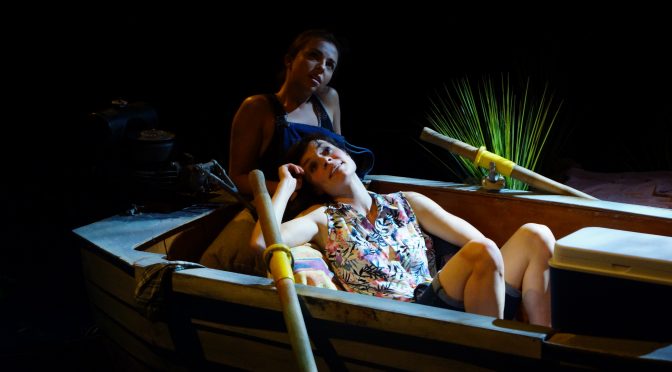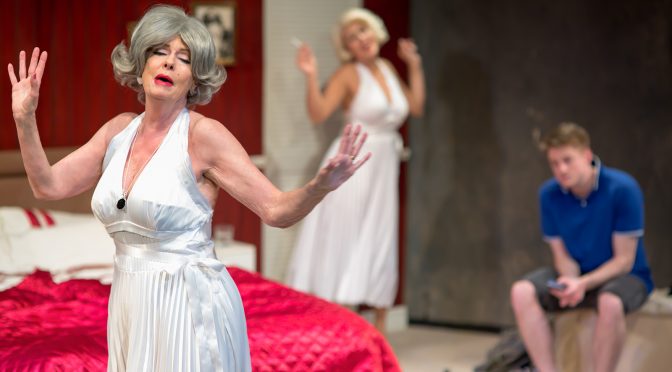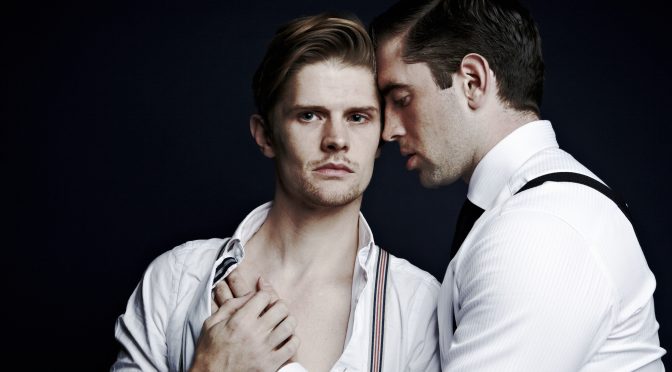This work from Audrey Cefaly won the Edgerton Foundation new American play award and receives its European premiere under the careful direction of Matthew Gould. The Gulfis an artful, confidently quiet two-hander that examines a dying romance with powerful realism.
The lovers, well performed by Anna Acton and Louisa Lytton, are Betty and Kendra and it’s a case of opposites attracting. If you side with one party, it could well be revealing. And there’s the potential to take some of their wisdom away with you. Describing herself as “delightful”, Betty is a dreamer with a head full of plans and ambition. A bit of a snob, maybe, and with a secret to hide, Acton conveys all of her character’s complexity in satisfying style. Lytton’s Kendra is, appropriately, more charismatic. She describes herself as “a beast”, but obtuse is the better word used – living in the here and now there seems more awareness, a deeper intelligence, and Acton’s skill lies in revealing this.
Some snags may have arisen in the play’s move to the UK. It’s not quite obvious how old the women are, if indeed that matters, so when they talk about going to college it isn’t clear how mature a student each would be. In both instances, how dissatisfied they are, or should be, with small-town life could also be made more explicit. Finally, in my ignorance of geography, I’m not sure how much peril the women are in when their boat breaks down or whether Betty’s subsequent hysteria is justified or a telling revelation of character.
Quibbles aside, Cefaly’s writing of emotional intimacy is accomplished, exploring deep inside a relationship. Gould never upsets the tension or overplays the suggestion of physical violence, while the chemistry between the two is perfectly portrayed. Such a character-driven piece, with relatively low stakes and little plot, will not excite everyone but, as a close study, clear in purpose and execution, the play is impressive.
Until 5 May 2018
Photo by Rachael Cummings



